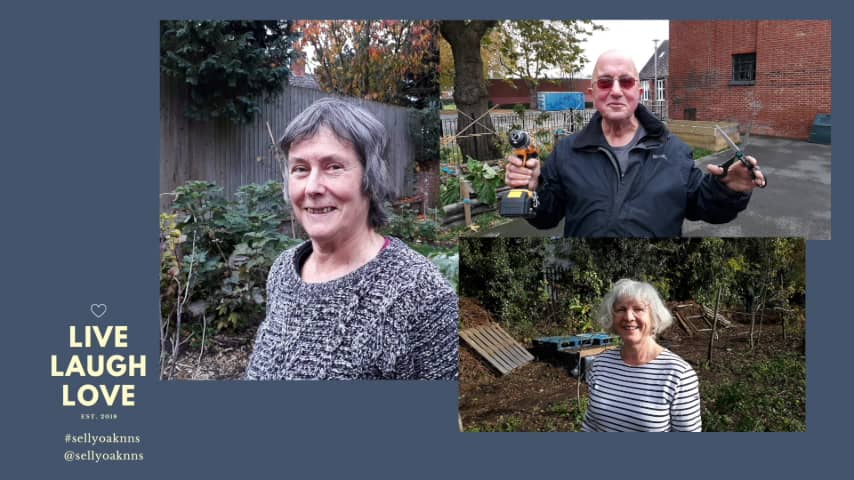A city council scheme that provides grants and funding for voluntary organisations and charities has been given permission to be extended and recommissioned.
The 10 Neighbourhood Networks Schemes – one for each constituency – provide older people with a range of community-based support within their neighbourhoods.
As well as helping citizens’ independence and creating strong community links and making our neighbourhoods better places to grow old in, it reduces demand for more traditional and expensive care packages by focusing on prevention.
The Neighbourhood Networks’ role is to strengthen local communities so that older people can lead healthy, happy, independent lives within their own homes and communities. They do this by promoting and developing partnership work between the voluntary and community sector, and parts of the public sector, especially local social work teams and social prescribing link workers.
Grants previously provided through the NNS have gone to organisations that provide a huge range of activities and services, such as food and befriending support during the Covid-19 pandemic to coffee chats, seated yoga, walking football, art, allotments and many more.
Councillor Paulette Hamilton, cabinet member for health and social care, said: “This is about investing in targeted prevention activity. The earlier we do this, the better for the individual, and it avoids costly statutory intervention. So we need to continue to invest in our communities and ensure third sector grants go to groups that can use it to do some great prevention work.
“The Selly Oak NNS funded the 18 at Heart project, which created 700 hand-stitched hearts to decorate railing and trees along the 18 bus route in the city. Older residents from communities on the bus route were invited to unleash their inner artistic rebel and stitch for the ‘yarn bomb’ while also sharing their own memories of being aged 18. While it started just before the first lockdown, it provided vital community connections for older people feeling lonely or shielding.
“This is just one example of the great work going on in communities across the city, which we can support with the Neighbourhood Network Schemes.”
The report was approved by the city council’s cabinet on 27 July.
Other examples of NNS work include:
Redeemer Church, Northfield: Supporting the Local Community - This church has adapted its offer to meet a wide variety of local needs. This has included food shops, food parcels, connecting people to the local food bank, pharmacy runs, gas and electric vouchers, referral, and one-off events such as an alternative Halloween party for children with activity and snack packs and supporting the Northfield VE Day on your Porch initiative. They have made regular welfare calls and stayed in touch with their usual participants to check what they may be needing, even doing some of these at a distance in the front garden. They have made a point of celebrating events such as delivering a birthday cake or holding a mini birthday party.
They have used available funding to buy a few participants’ tablets and have worked with them to get wifi access and to be able to join activities. Their approach has also not just been delivering services, but creating connected communities. One example is of two men who had previously met at a Redeemer Church event. They connected them up; co-ordinated one to do the other’s shopping, and covered volunteer expenses.
Through lockdown, they ran a virtual coffee morning each week, which some people attended every week. Since then they have managed to restart their Place of Welcome, working within the social distancing restrictions. They are working on a community craft project: embroidered bunting for the centre they use to remember this year. They have also organised some get togethers of over 50s picnic lunches (5 guests and one from the church team) in their garden.
The Cannon Street Memorial Baptist Church supported a man with mobility limitations. Accelerated early onset dementia meant his wife who was his carer could not care for him, so the church helped arrange home delivery of medication, sourced trusted carers and arranged meal deliveries to the home every day. A quick call each morning was reassurance and support for him. 12 months later, the right assessments and a good care plan has been put in place for them. He has said that “Me and the Mrs would not have made it without your help, I can’t thank you enough you have given us a better quality of life.” Recently he has befriended a gentleman who in a similar situation and has been really supportive to him.
When physical ailments took their toll on older women, the worry of not being able to cook meals had a negative impact on her confidence and self-esteem. She was becoming depressed knowing she was not managing her diabetes so she turned to CSMBC for help. Weekly wellbeing phone calls meant she could order the foods they were no longer able to cook. She said “Every Friday I look forward to my meals knowing that once again we can eat the food we love, and my blood sugars are good.” Her Husband has always grown produce at an allotment and have said they will now donate produce to the church so we can distribute it to families who need it.











